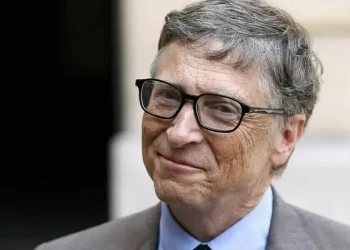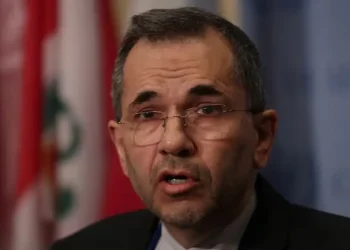Kayla Reed was born in a predominantly African American section of St. Louis where, like her own kin, many Black families had been transplanted out of the Deep South.
After the death of her grandmother, Reed moved with her father from the city to a St. Louis County town located within one mile of Ferguson, Missouri, where 10 years ago, a Black teenager’s fatal shooting by a white police officer changed Reed’s life and shook awake a nation.
“It was like in my backyard,” she recalls. “I don’t really feel like I considered myself much of an activist. I definitely think I had the type of Black consciousness that comes with being raised by a Black preacher and seeing Black people go through so much.”
Reed was not a community organizer. She was a pharmacy technician with second job at a furniture store. Like so many others, on Aug. 9, 2014, she learned by word of mouth, as she clocked out of a shift, that an unarmed 18-year-old from the neighborhood had been killed.
His name was Michael Brown.
EDITOR’S NOTE — Over the next several weeks, media will publish a series of stories exploring the impact, legacy and ripples of what is widely called the “Ferguson uprising” but has sparked nationwide outcries over police violence and calls for broader solutions to entrenched racial injustices. The series provides a sprawling look at racial justice in American life, from stories about how the uprising changed the U.S. Department of Justice and how corporations sought to boost their profiles by donating to the movement, to examinations of a reckoning on race in schools, churches, politics, sports and public health.
___
When Reed joined hundreds of grieving community members out at the scene, Brown’s bloodied body had been removed from the middle of Canfield Drive, a two-lane street in Ferguson, a majority-Black city where the relationship between local police and residents had long been tenuous. The tensions worsened after detectives left Brown’s corpse covered with a white sheet for four traumatizing hours in the summer heat, in full view of an apartment complex.
Darren Wilson, the Ferguson police officer who fatally shot Brown, had driven a police vehicle up to the teenager and his friend on Canfield Drive. The officer ordered them to get up on the sidewalk before a scuffle ensued. Although Brown was unarmed, Wilson described Brown as menacing at 6-foot-4 and claimed the teenager charged at him before he opened fire.
Some nearby residents said Brown had his hands up in surrender when he was shot.
For Reed, Brown’s encounter with the Ferguson officer was familiar. Her brothers, her dad and other loved ones had been subjected to mistreatment, disrespect and indignity by the area’s police. Nonetheless, she was shocked.
“I just found myself sort of returning to (Canfield Drive) day after day, and then to what becomes the uprising,” says Reed, who became an organizer amid the protests and civil unrest.
Largely peaceful demonstrations — some blemished by vandalism, theft and arson among residents and outside opportunists — were met with violent police response. But the demonstrations weren’t contained to Ferguson. Over the next decade, the deaths of Black people at the hands of police and vigilantes would draw support, resources and democratic change to communities all over the nation. “This time,” residents vowed, things must be different.
Today, Reed is the executive director of Action St. Louis, a Black-led political activist group that she co-founded in 2014. She says the passage of time has proven that what began as an uprising in Ferguson has resulted in measurable change for Black Americans.
Movement-minded leaders have been elected and anti-progressive leaders unseated. Local legislation has been passed to dismantle prisons and jails, and federal legislation has been introduced in Congress. Most critically, more people are politically educated and engaged with the idea that they can build communities that work for them and not simply exist in an ecosystem of systemic racism.
“What we’ve tried to show over the last 10 years is that there is no landmark piece of legislation that we’re chasing,” Reed says. “What we are chasing is the fundamental uprooting of a system rooted in anti-Blackness, rooted in the form of white supremacy that has been continuously violent for over a century to our people.”
The death of Michael Brown prompted an eruption of protests and gave a boost to a then-nascent Black Lives Matter movement. In subsequent years, a new generation stepped forward to pick up the work of civil rights and racial justice started by their parents and grandparents. In racial justice movements, the uprooting of white supremacy is a lesser-invoked aim — one that also demands white people reckon with their race’s complicity in generations of disadvantage faced by Black Americans and other people of color.
It’s not just BLM. Over the last decade, Indigenous people defended land and water, Latinos resisted draconian immigration detention and deportation practices, and Asian American activists pushed back on xenophobia that endangers their lives. Together these movements, benefitting from multiracial coalition-building, are changing American democracy and the broader culture, encouraging activism the world over.
Michael Brown inspired much of that. But a decade later, the future of racial justice in the United States remains in question.
“Michael Brown embodied the anger, that was so obvious and evident after decades of dismissing it, of holding it back, of telling ourselves we’re going to overcome,” says Karla Scott, a communications professor and the former African American Studies program director at St. Louis University. “It just became the moment we said, we can’t be polite anymore. He set fire to all of the anger that had been smoldering for centuries. And it was not just the Black community.”










 American Dollar Exchange Rate
American Dollar Exchange Rate